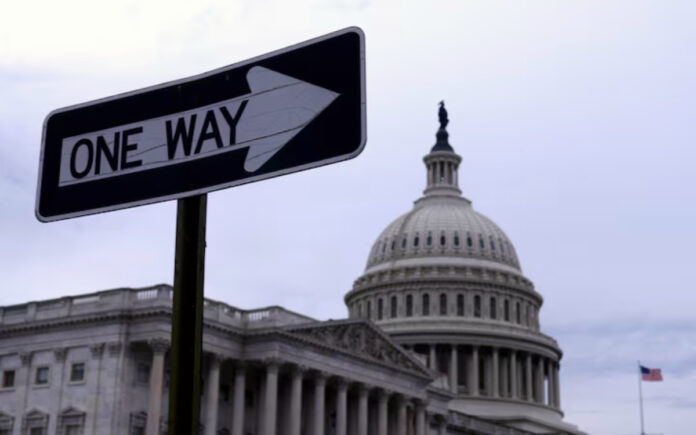Washington: U.S. President-elect Donald Trump’s Republican Party has inched closer to securing a majority in the House of Representatives, bringing it within reach of full control over Congress. This would allow Trump a legislative advantage as he assumes office in January, giving Republicans the power to pursue his policy goals.
As of Tuesday, Edison Research projected that Republicans have secured 216 seats in the House, just two seats shy of the 218 needed for a majority. Democrats, meanwhile, have won 207 seats, with 12 races still uncalled. Among those reelected were California’s Republican Representative David Valadao and Democratic Representative Mike Levin.
In the Senate, Republicans have already locked in a majority with at least 52 seats. However, they remain short of the 60-vote supermajority required to pass most legislation, meaning Democrats may still exert some influence over legislative proceedings, even if Republicans gain control of the House.
Also Read | Chinese Leaders Urge Inquiry into Zhuhai Tragedy as Social Media Questions Rise
A Republican-controlled House would grant the GOP authority to push through a significant agenda, including tax cuts, reduced spending, energy deregulation, and stronger border security measures.
The remaining 12 House races are largely in competitive districts in Western states, where vote counting typically progresses more slowly.
Also Read | Lebanon-Israel Tensions Soar as Hezbollah and Israeli Forces Exchange Strikes
On Wednesday, Republican senators are scheduled to meet to determine their leadership for the upcoming term in 2025. Candidates for the role include John Thune, John Cornyn, and Rick Scott, all of whom are vying to succeed outgoing Senate leader Mitch McConnell.



